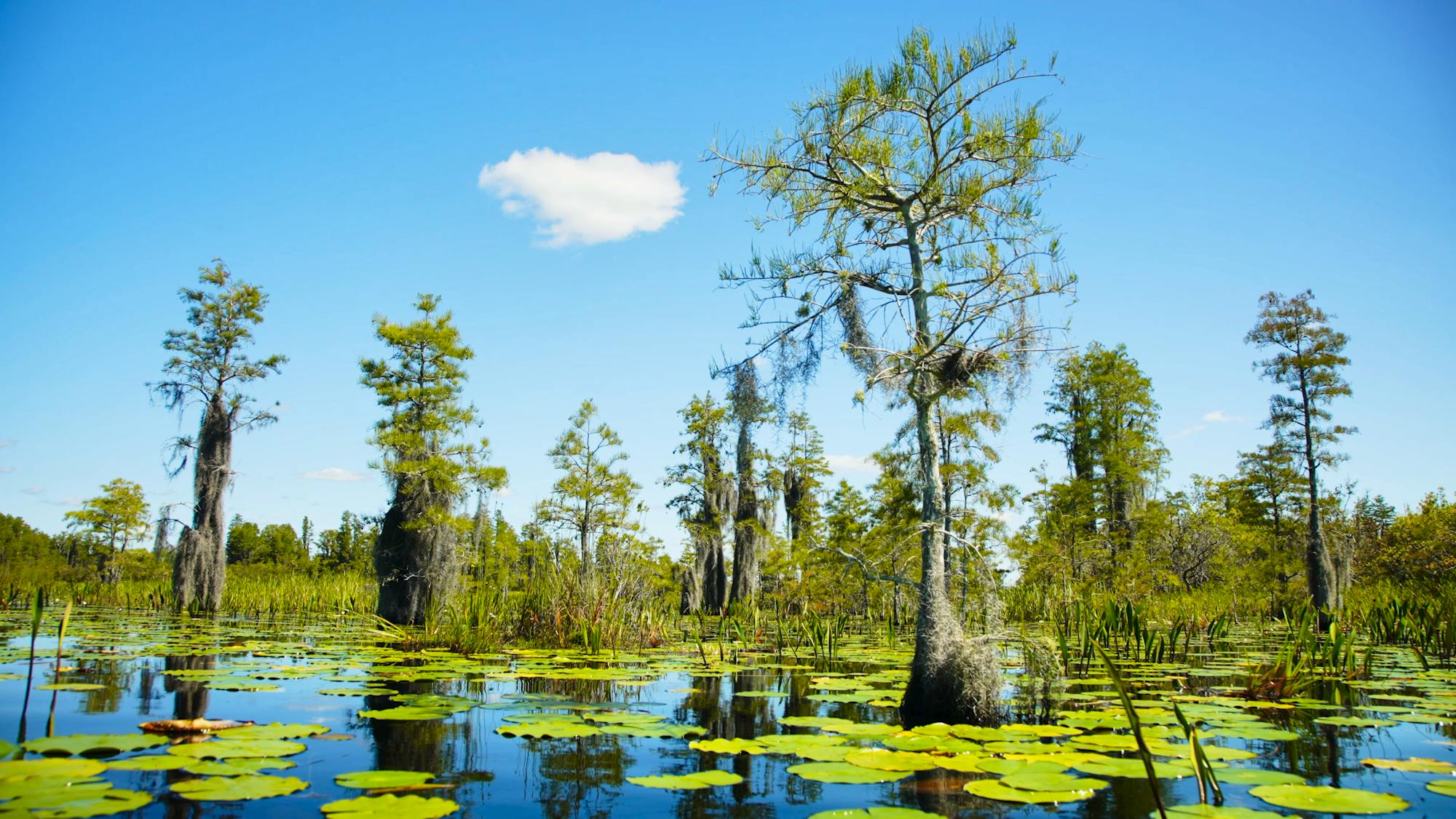Will Georgia’s governor protect his state’s greatest natural asset?
That’s the question facing Governor Brian Kemp, following a call to action from Secretary of the Interior Deb Haaland. In a historic letter, the Secretary urged the state to reject proposed mining operations near the Okefenokee Swamp, raising the heat on a decades-long fight for the east’s largest wildlife refuge.
Citing the concerns of scientists, including those from the University of Georgia, Haaland decried mining for its potential to irrevocably undermine the Okefenokee, as well as resources of cultural importance to the Muscogee (Creek) Nation.
“The Department [of the Interior],” Haaland asserted, “has a profound interest in protecting the health and integrity of the swamp ecosystem,” which is a “treasure for the people of Georgia, our Nation, and the world. . . I strongly recommend that the State of Georgia not move ahead.”
The response from Twin Pines Minerals was predictably big on rhetoric, short on facts and full of finger pointing. Steve Ingle, the President and CEO, accused scientists of stoking hysteria, and demeaningly branded Secretary Haaland, as “emotional” and prone to poor judgment.
For a project that has long since lost political and scientific support, it’s an obvious, desperate plea for credibility. It’s also a historic opportunity for Georgia officials.
Twenty-five years ago, then Secretary of the Interior Bruce Babbitt opposed a similar project led by the company DuPont. “You can study this, you can write all the documents in the world,” declared Babbitt, “but they’re not going to prove beyond a reasonable doubt that there will be no impacts on the Okefenokee Swamp.” After reaching the same conclusion, Governor Zell Miller and the Georgia Board of Natural Resources also came to oppose all such operations.
While decades have passed since DuPont retreated, the appetite for mining near the refuge remains unchanged. According to a recent poll, 75% of south Georgians want Governor Kemp to immediately protect the Okefenokee. Far from a partisan issue, these sentiments were held across demographics and party lines, with a mere 14% of voters in support of the project.
Had the poll described the tortured history of Twin Pines, support for the mine may have dipped into the single digits. The pollution of local communities, widespread fish kills and the illegal discharge of mining waste are but a few of the violations tied to those leading the company. Most recently, the company thumbed its nose at regulators by illegally clearing land for its draglines without a permit. Twin Pines also drilled boreholes without proper licensing or bonding, according to regulators, further flouting protocol.
As one of the world’s only intact freshwater ecosystems, the Okefenokee is poised to become a World Heritage Site, the first in the National Wildlife Refuge System. Efforts are also afoot to create a multi-campus museum experience on the swamp’s edge, further driving tourism. However, were the Okefenokee’s water quality or quantity impacted—a veritable certainty, according to scientists—half of visitors would be less likely to revisit, according to refuge surveys.
Recognizing the dangers at hand, Senator Jon Ossoff (D - GA) called for “all hands-on deck.” Former cabinet members from the Bush and Clinton administrations similarly denounced the project. Two Georgia Department of Natural Resources Commissioners—that served under three Georgia governors—said the same, as well as more than 100,000 people. With five permits under his control, the torch has now been passed to Governor Kemp.
His choice is simple: either a beleaguered, out of state company whose unsavory track record is predictable and well-established—or long-term tourism rooted in the health of a world-renowned resource.
There can only be one sensible decision: the permits must be rejected, and the Alabama-based company sent elsewhere.







